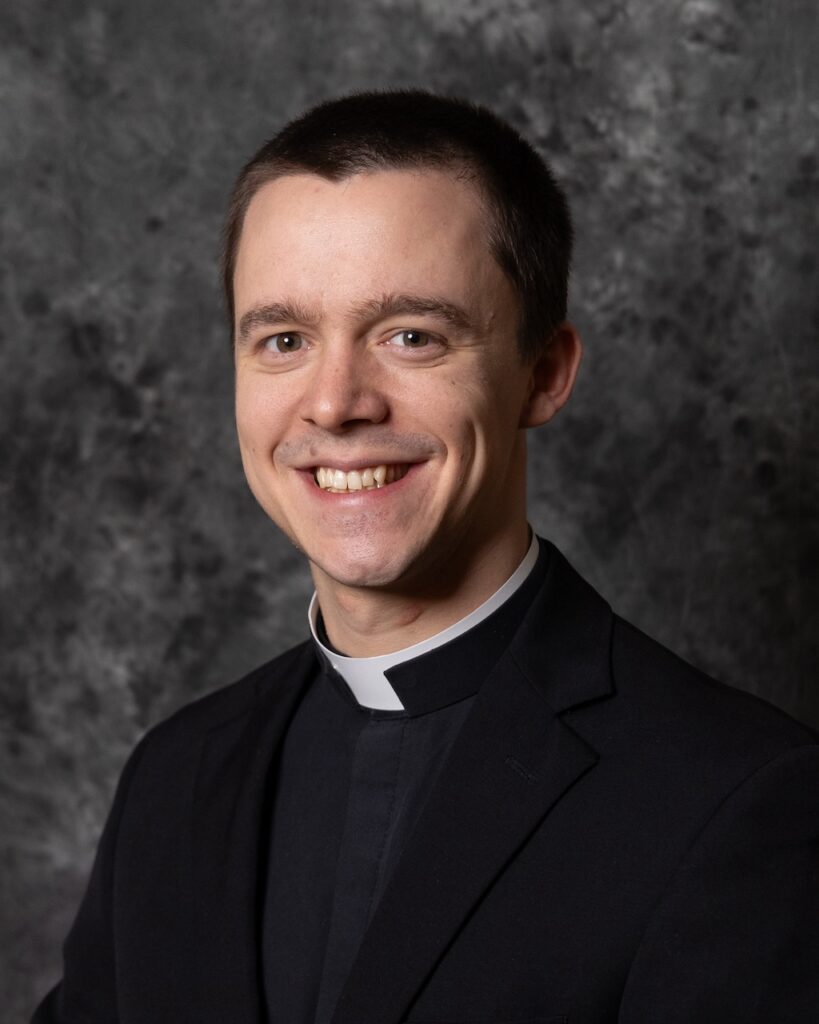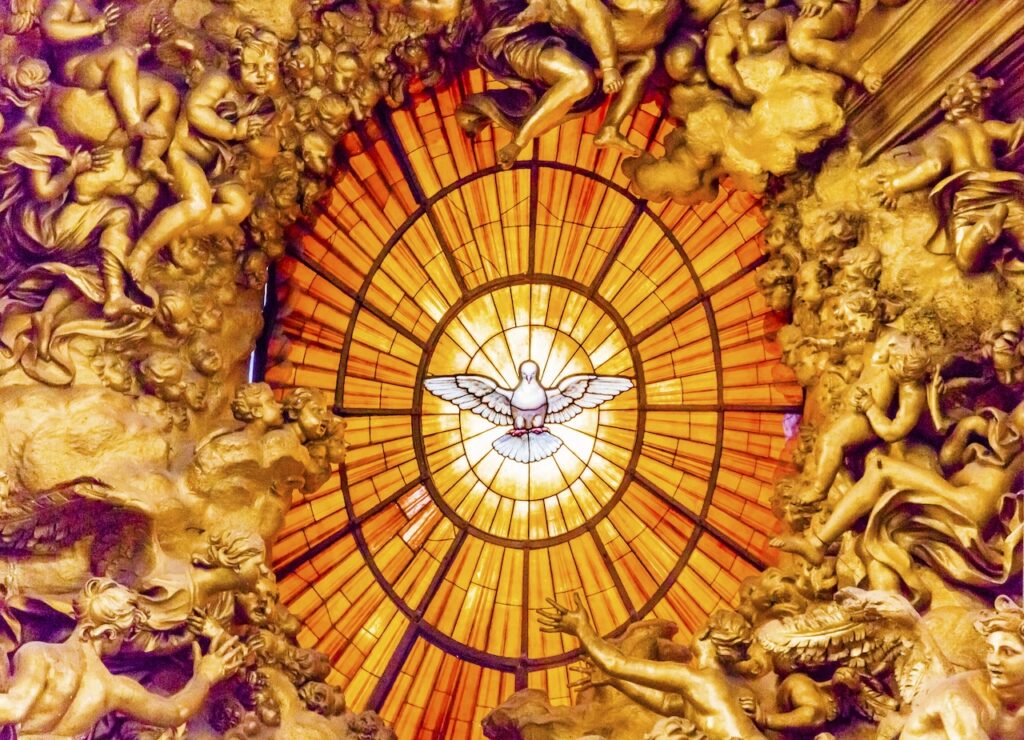Reflection on the Mass readings for May 19 (Pentecost Sunday)
Acts 2:1-11
Ps 104:1, 24, 29-30, 31, 34
1 Cor 12:3b-7, 12-13 or Gal 5:16-25
Jn 20:19-23
The Church, by most reasonable estimates, should not have succeeded.
It is easy to forget, with the benefit of hindsight and historical distance, that on the day of Pentecost there were few exterior signs that Christianity was alive, much less poised for explosive growth.
But that day, something changed; some unseen force in the heart of the Body of Christ now propelled disciples – who had been so quickly scattered in the days of his Passion – out into the public eye, and gave them a power and facility for preaching that overcame even the limits of language itself. That catalyst, of course, was the Holy Spirit.
I think most of us would agree that the Holy Spirit is probably the person of the Holy Trinity who is most challenging for us to appreciate or relate to. There are good reasons for this: while God the Father is accessible especially through the lens of our own family upbringing, and Jesus Christ even more so in his human nature, it is much less natural to imagine how the Spirit acts in our lives.
On this beautiful solemnity of Pentecost, however, we can see through the witness of Scripture that rather than being distant or irrelevant, the Holy Spirit plays an essential role in the life and renewal of the Church, a role needed now as much as any time in our history.
The dynamic power of the Spirit is most obvious in the charisms, or spiritual gifts, that he generates in the lives of the Lord’s disciples. For the Apostles, this was immediately obvious in their preaching ministry, not just in the boldness with which they proclaimed the Gospel, but in the supernatural efficacy of that evangelization.
The exact form of these gifts varies from person to person; as St. Paul would explain in his first letter to the Corinthians, “There are different kinds of spiritual gifts but the same Spirit; there are different forms of service but the same Lord” (1 Cor 12:4-5).
What each of these diverse gifts has in common, however, is their common purpose in building up the Church. As each of us grows in holiness and in our relationship with God, it’s to be expected that we’ll see these gifts develop and mature in different ways as a fruit of the Holy Spirit’s action in our lives.
At the same time, the Spirit is not only the source of the Church’s spiritual diversity, but also the principle of its unity. As St. Paul explains, in the Spirit we are brought together as the one Body of Christ, each of us working for the growth and renewal of the Church as we serve in different but complementary ways.
This renewal also extends to us as individuals as we receive what St. Paul would refer to in his letter to the Galatians as the Fruits of the Spirit: love, joy, peace, patience, kindness, generosity, faithfulness, gentleness and self-control. Jesus himself offers one of these gifts to his disciples in his Resurrection appearance as he breathes forth the Spirit upon them with the greeting, “Peace be with you.”
I hope it goes without saying, then, that each of these characteristic actions of the Holy Spirit is the answer to a profound need in our lives.
There are still countless souls who need to hear and receive the message of the Gospel in a way that is inspired, dynamic, and can overcome the effects of sin and the obstacles placed in its way by secular culture. There are still innumerable wounds against the unity of our Church, our communities, and our families that can only be restored in full by the Lord’s healing love. There are still so many of us who crave the peace, reconciliation, and renewal that can only be found in God.
The same Spirit who transformed the Apostles on the day of Pentecost is ready to act in our hearts as well, if we are willing to give him that freedom. The beautiful truth is that the Holy Spirit is not reserved only to an elite class of Christians, nor confined only to that one day in history.
Rather, the Holy Spirit is a gift given to each of us on the day of our baptism, and he works in us and through us as we participate in the sacramental life of our parishes. If we want to continue to experience that renewal, then that is where we belong – in the place where it all began, in the heart of the Church.
 Father Cassidy Stinson is the administrator of St. Jude, Radford; chaplain of Radford University Catholic Campus Ministry; and a member of the Institute of Jesus Priest, a secular institute founded by Blessed James Alberione.
Father Cassidy Stinson is the administrator of St. Jude, Radford; chaplain of Radford University Catholic Campus Ministry; and a member of the Institute of Jesus Priest, a secular institute founded by Blessed James Alberione.

